- Home
- Peter Ackroyd
Wilkie Collins Page 15
Wilkie Collins Read online
Page 15
Certain domestic events, however, must have to an extent marred his concentration. By the spring of 1871, at the latest, Caroline Graves had left her husband and returned to Gloucester Place after an absence of almost two years. She had become estranged from Joseph Clow for reason or reasons unknown, but of course she may also have missed the company of Collins and that of her daughter. In the census of 1871 she is described as “widow” and as “housekeeper and domestic servant.” She lived with him for the rest of his life, and took on the role of his companion. She and her daughter were often seen in public with him, attending the theatre or visiting the exhibitions. The two women also travelled abroad with him. One acquaintance, meeting him with the Lehmanns soon after Caroline’s return, reported that he seemed in much better health and spirits, “very bright and pleasant.”
Martha Rudd remained indistinctly in the background, although this spring she gave birth to another daughter, named as Harriet Dawson. Even if Martha Rudd never visited Gloucester Place, her children were always welcome there. Collins’s family, morganatic or otherwise, was growing. To have two mistresses was, even by the standards of the nineteenth century, a precarious situation; but Collins seems to have adapted to it quite naturally and cheerfully. In his fiction he explored interesting or difficult relationships; in his life he remained inscrutable and imperturbable. In a letter to his solicitor concerning his will he refers to “C” and to “M,” but that is one of the few references to Martha in his correspondence. There are, however, many allusions to “the ladies” at Gloucester Place and to “the two Carolines.” It is not at all clear that Martha Rudd resented her status; she may have accepted her role, grateful that she had been afforded security. Collins was always careful to make provision for her and her children, and no doubt his native kindliness and affability marked his relationship with the much younger woman.
In the autumn of 1871 his new novel, Poor Miss Finch, began its life in Cassell’s Magazine. It was shorter than its predecessors, as he had planned, and lasted for six months before its publication in volume form by George Bentley. The firm of Bentley had introduced the work of Collins to the public more than twenty years before, and George Bentley now resumed the connection by offering £750 for the right to publish the serial.
In the same period The Woman in White finally reached the stage. A pirated version had been performed ten years before, at the time of the original publication, but this was Collins’s version. It was a demanding production with interminable rehearsals lasting all day and sometimes half the night. Since the actor playing the role of Count Fosco was also the director, there was room for disagreements among the members of the cast. “I marvelled at him,” one of the actors recorded, “for authors as a rule are…the reverse of patient when attending the rehearsals of a piece they have written.” Collins, however, remained “gentlemanly, patient and good-tempered, always ready with a smile if a chance offered itself or a peaceful word kindly suggesting when a point was to be gained.”
When it eventually opened at the Olympic on 9 October 1871, it lasted for four hours. Nevertheless it was a great success. The critic of The Times noted that Collins had “firmly grasped the rarely appreciated truth, that situations which appear dramatic to a reader, are not necessarily dramatic when brought to the ordeal of the footlights.” Collins knew well enough that the popularity of the novel meant that its secrets had already been revealed. He dropped the meeting on Hampstead Heath; he developed scenes that he had only briefly employed in the novel, and generally relied more upon character than upon mystery. The audience loved it. Collins had remained in the dressing room in a state of nervous terror, but he was called forward at the end amid scenes of universal enthusiasm. It seemed that “all London,” or at least that part of it devoted to literary and artistic pursuits, was there. The run at the Olympic Theatre lasted for six months; extra chairs were put in the aisles, and prospective customers were turned away at the door. It was all, as Collins said, an “immense success.” He had at last achieved his ambition of making money from the theatre.
The brief efflorescence of health did not last. In the early summer an attack of rheumatic gout confined him to his bed; once more the affliction went to his eyes and left him almost blind. One friend said that they “were literally enormous bags of blood.” “Do you know what colour her eyes are?” a character asks in a subsequent novel, I Say No. “Red, poor soul—red as a boiled lobster.” He took “electric baths” and went for drives in the fresh air; in the summer he tried the fine air of Upper Norwood, and was taking quinine as well as laudanum. But these were not proper remedies. There never was a time, in fact, when he was not recovering from a bout of illness or preparing for another. He had the appearance of a prematurely old man, and knew that he had before him the life of a semi-invalid more and more dependent upon opium.
Since he had already spent many days with a bandage around his eyes he naturally had some sympathy with the blind Miss Finch in the novel published at the beginning of 1872. It was subtitled “A Domestic Story,” and for some it was a little too domestic; one reviewer described it as “a sensation novel for Sunday reading.” The plot itself is, in the abstract, ridiculous. A blind girl falls in love with a young man who is an identical twin; unfortunately his skin is discoloured by the treatment of silver nitrate for his epilepsy. A German eye surgeon restores Miss Finch’s sight, whereupon the young man’s identical brother—whose skin is perfectly pale—steps into his place. The consequent confusions are better perused than described. And of course all ends happily, the normal condition at the end of Collins’s fictions.
Yet it has a strange power, also characteristic of Collins’s novels. It is the power of curiosity, as the reader goes forward eagerly precisely to find out what happens next. Collins is very meticulous and methodical, leaving clues and evidences in the right places and invoking at all times “coming events” or “the light of later events” that will change the lives of the protagonists for ever. He hints perpetually at something “under the surface,” a “hidden motive” or a “terrible secret,” that further provokes an insatiable curiosity. The reader is in a state of perpetual anticipation; as soon as one crisis is resolved, the author prepares another one. It is equivalent to a long walk in a landscape advertised by road signs and finger-posts; you simply have to go on.
Poor Miss Finch was not an overwhelming success and Bentley lost money on the venture. The story of the blind girl and the blue man was not to the public taste. It is sometimes said, in fact, that Poor Miss Finch marks the beginning of Collins’s decline as an artist. He became a “message” novelist, more concerned with polemic and argument than with style or invention. As Swinburne put it,
What brought good Wilkie’s genius nigh perdition?
Some demon whispered—Wilkie! Have a mission!
This is snappy but it is not accurate. Collins never lost the habit—first evinced in Ioláni—of peppering his text with authorial interjections; some were wise, some witty, some witty and wise, and some merely sententious. He did not sermonise as such, but the didactic element was always there. Collins did not have a “mission,” but he did have a vision, an understanding of human relations that he wished to propagate. The prefaces themselves advert to this. Yet he never allows any “message” to override the imperatives of plot, while his dislike of such practices as vivisection lends power and purpose to his prose. He saw himself as an entertainer and a storyteller rather than a lecturer.
In truth his writing is all of a piece, from Basil to his final and uncompleted fiction. He had a genius for construction, above all else. He turned the process of telling a story into a formidable art. In his hands the sensation novel and the detective story became things of beauty precisely because he lends them an air of reality. Clarity of style, and lucidity of expression, were for him of paramount importance. It is true that he had no genuine insight into the vagaries of human nature, but that is no reason to disqualify him as an artist. He was simply interested
in other matters. His plots, for example, are perfectly calibrated mechanisms.
The Woman in White and The Moonstone may be the summit of his accomplishment, but novelists are often unjustly condemned for not being able to match their greatest achievements. All of his work remains powerful and ingenious, striking and persuasive. It is true that his later novels are no longer widely read, but modern taste is not impeccable. The themes and issues that haunted the Victorians may have been for a while exorcised; the conventions of the time that Collins attacked are now no longer pertinent. Yet he is still a living presence in English literature.
We may leave the last words on this matter to Count Fosco of The Woman in White. “Habits of literary composition are perfectly familiar to me. One of the rarest of all the intellectual accomplishments that a man can possess is the grand faculty of arranging his ideas. Immense privilege! I possess it. Do you?”
CHAPTER SIXTEEN
Another Country
He had said, at the beginning of 1872, that he had no intention of beginning another long story for at least a year. He needed a rest. He wanted to get out of the country, but he first went back to Ramsgate in March. Two or three months later he made the familiar journey to Paris. His travelling companions for these two visits are not known, although the supposition must be that for at least one of them he was accompanied by Caroline and Carrie Graves. In the same period Martha Rudd herself moved to the Marylebone Road with her two young daughters; on a visit to a furniture store on the Tottenham Court Road, Hewetson & Thexton, she and Collins purchased a dining table, a sideboard, five dining chairs, a walnut bureau, a couch and an easy chair. She was not living in straitened circumstances. He was as usual unwell. “Oh Christ,” he wrote to Lehmann in the summer, “now the gout is gone, here comes the rheumatism.” His family were also in uproar; his three-year-old daughter, Marian Dawson, had broken her leg. Beard was summoned to mend it, which he did.
In the autumn of the year Collins was staying at Nelson Crescent, Ramsgate, for the first time. On this occasion he was with Caroline Graves. In this seaside town he set up a curious symmetry in his living arrangements. When he came down with Martha Rudd and the children he stayed at Wellington Crescent, immediately opposite Nelson Crescent on the other side of the bay. The households could therefore be respectably presented to two different landlords or landladies.
Yet even here he was still deeply at work, despite the unseasonably warm and muggy weather. He had not adhered to his resolution over the writing of a new novel. In the autumn of the year The New Magdalen appeared as a serial in Temple Bar magazine, a periodical edited by George Bentley that had superseded Bentley’s Miscellany. It was expressly designed to be a drama as well as a novel and immediately begins on a sprightly note of theatrical invention.
Even as it was being serialised the highly respectable Charles Edward Mudie, founder of the largest of the circulating libraries, demanded a change in the title. “Magdalen” was the name for a reformed prostitute. Collins of course refused, telling Bentley that “nothing will induce me to modify the title…But the serious side of this affair is that this ignorant fanatic holds my circulation in his pious hands.” Collins may have deliberately chosen the story of a prostitute as a way of gaining sales; he might have wanted to bring back the public that had not appreciated Poor Miss Finch. In this strategy he appears to have been successful, since the sales of Temple Bar rose appreciably. He told Bentley that he was glad to hear that the first number had “hit the mark” but that he was saving the strongest situations for later. By the spring of the year it was reported that Temple Bar had become “the most sought after monthly of 1873.”
While the novel was being serialised Man and Wife opened at the Prince of Wales Theatre. After the success of The Woman in White Collins’s expectations were high. It was, after all, an eminently dramatic story. It was staged by Squire and Marie Bancroft, two highly successful Victorian actors who had previously specialised in light comedy which became known as “drawing-room comedy” or “cup and saucer drama.” So Man and Wife was something of a departure for them. Once more Collins galvanised the theatrical world of London, and tickets were soon passing through the “black market.” The Daily Telegraph noted that the audience on the opening night “was almost wholly composed of those who have, in some form or other, won a social distinction of the most honourable kind.”
Collins was again beset with nervous terror, and spent the entire performance in Bancroft’s dressing room. Yet his anxiety was misplaced. As he wrote to a friend “it was certainly an extraordinary success. The pit got on its legs and cheered with all its might the moment I showed myself in front of the curtain.” The Bancrofts were known for the realism of their stage sets, which may have assisted the illusion, and for the first time on the London stage they used electric lighting for a storm scene. The theatre was always full. The Prince of Wales saw the play twice, on one occasion taking the tsarevich and tsarina of Russia. Collins had become the dramatist of the hour, and already the manager of the Olympic Theatre was trying to buy the rights of The New Magdalen.
Collins’s elation, however, was quickly overtaken by events. At the beginning of April his brother, Charles Collins, died after a long period of illness. He seems finally to have succumbed to cancer of the stomach, but it is possible that he was consumptive. For all those around him the death was considered a release for him from unrelieved suffering. Collins reported that he had died “without pain and without consciousness,” but a friend reported that Collins was “terribly broken down” after the event. He journeyed by train to Ramsgate in order to compose himself for a few days before the funeral.
Charles Collins’s life had been an unhappy and perhaps unlucky one; he never achieved his older brother’s success, and seems always to have been surrounded by people abler and more vigorous than himself. In his entry for the Dictionary of National Biography, Collins wrote that “it was in the modest and sensitive nature of the man to underrate his own success. His ideal was a high one; and he never succeeded in satisfying his own aspirations.”
Collins told Bentley that “I have hardly had a moment to myself since the miserable day my brother died.” The New Magdalen was about to be published in volume form and he was already occupied with rehearsals for the stage version, to be played at the Olympic. He had to make sure that the drama was performed immediately after the book’s release in order to avoid the danger of theatrical “pirates” taking it over. One of the actors recalls him at the rehearsals sitting with his manuscript at a small table near the footlights making cuts and alterations as required.
The book was published on 17 May 1873, and the play opened two days later. The New Magdalen is the story of a reformed prostitute, Mercy Merrick, who steals the identity of a “respectable” woman, Grace Roseberry, whom she has met on a battlefield of the Franco-Prussian War. She believes the lady to have been killed by a German shell, and therefore takes her clothes and papers so that she might begin a new life free of disgrace. She returns to England and, assuming the false identity, becomes the paid companion of a rich Englishwoman. Yet this is where the narrative springs to life. Grace Roseberry’s life was saved by a surgeon. Now she appears in the house where Mercy is employed, determined to challenge the pretender to her name. Matthew Arnold stated that The New Magdalen was his favourite sensation novel, and it does have a raw dramatic power that excites and enthrals the reader; it conveys an extraordinary intensity and excitement.
He met one such reader in a railway car. A clergyman and his two daughters were travelling with him. When the clergymen fell asleep one of the young ladies quietly took out a book from her bag; she dropped it and, when Collins retrieved it for her he saw that it was The New Magdalen. She blushed as she realised that her secret reading was discovered. “It’s perfectly dreadful,” she told her sister. But soon enough she was thoroughly absorbed in it. On signs that her father was about to wake, she quickly returned the book to her bag. When Collins looked at her
, she blushed again.
The stage version itself was an immense success, and Collins had to take an unprecedented curtain call between the acts as well as at the finale. He told George Bentley that “I don’t think I ever saw such enthusiasm in the theatre before.” It was revived many times throughout the nineteenth century, and silent film versions were screened before the First World War.
He had hoped that the success of the play would guarantee a large sale of the novel, and that the clamour of the public would force Mudie to buy large quantities for his circulating libraries. Yet there was no such demand, and a large number of unsold copies was left on Bentley’s hands. Collins himself was so discouraged by this relative failure that he seriously considered giving up the trade of storytelling and concentrating upon the theatre instead.
Yet at the same time other employment offered itself. In the spring of the year he received a proposal for a reading tour of the United States. Other English novelists, most notably Charles Dickens, had proved that travelling from city to city with book in hand was a profitable enterprise. Collins himself speculated that he would make a large sum out of it, and he assented. He had, first of all, to prepare himself. At a charity matinee at the Olympic in the summer he read an expanded version of his short story, “A Terribly Strange Bed.” He knew well enough that he could not cut up the intricate mechanism of his ingenious plots, and that he must rely instead on the tone and atmosphere of his shorter fiction.
The summer reading had a mixed response. Percy Fitzgerald, the journalist, reported that it was “singularly tame…clever man as he was, the impression he produced was that of all things in the world he had selected the one for which he was the least fitted.” Frank Archer, the actor, said that “he lacked the physique and varied gifts for a public reader, but what he did I thought was earnest and impressive.” A review in the Pall Mall Gazette warned him to take on the role of a lecturer rather than an actor; “otherwise, he will expose himself to the ridicule of the unfeeling.” Short and prematurely aged, he did not have the commanding presence of a born performer. He would have to play to his strengths and, with that in mind, he prepared himself for the Atlantic voyage.

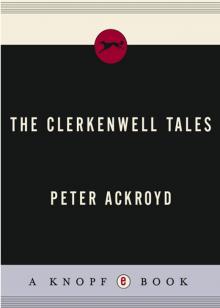 The Clerkenwell Tales
The Clerkenwell Tales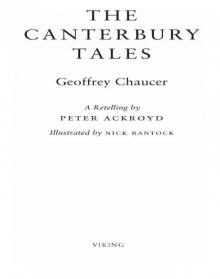 The Canterbury Tales
The Canterbury Tales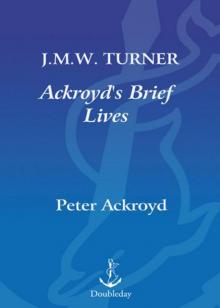 J. M. W. Turner
J. M. W. Turner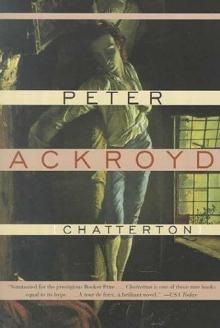 Chatterton
Chatterton The Canterbury Tales – A Retelling
The Canterbury Tales – A Retelling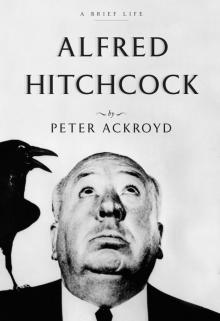 Alfred Hitchcock
Alfred Hitchcock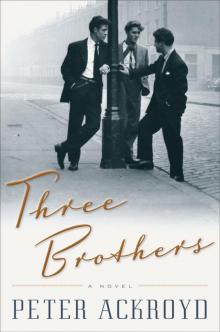 Three Brothers
Three Brothers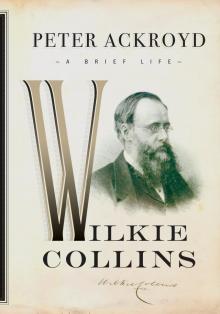 Wilkie Collins
Wilkie Collins Venice
Venice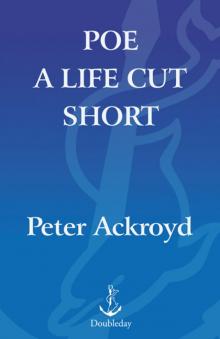 Poe
Poe The Lambs of London
The Lambs of London London
London Queer City
Queer City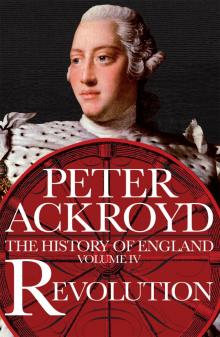 Revolution, a History of England, Volume 4
Revolution, a History of England, Volume 4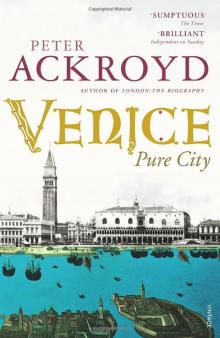 Venice: Pure City
Venice: Pure City Foundation
Foundation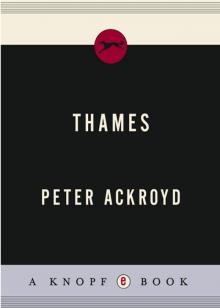 Thames
Thames The Plato Papers
The Plato Papers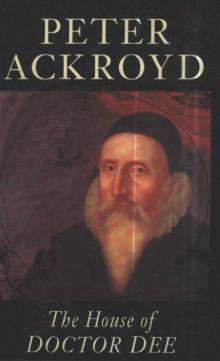 The house of Doctor Dee
The house of Doctor Dee Rebellion: The History of England from James I to the Glorious Revolution
Rebellion: The History of England from James I to the Glorious Revolution Albion: The Origins of the English Imagination
Albion: The Origins of the English Imagination The Fall of Troy
The Fall of Troy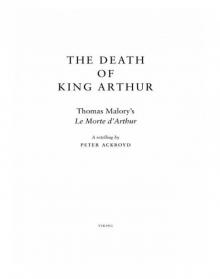 The Death of King Arthur
The Death of King Arthur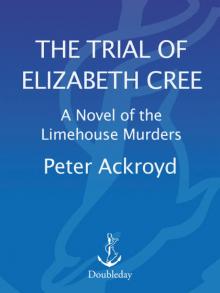 The Trial of Elizabeth Cree
The Trial of Elizabeth Cree London: The Biography
London: The Biography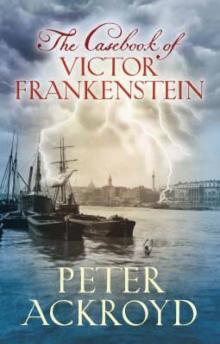 The Casebook of Victor Frankenstein
The Casebook of Victor Frankenstein Hawksmoor
Hawksmoor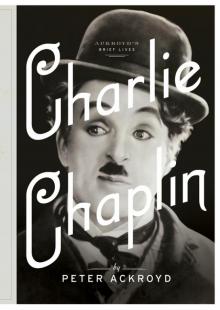 Charlie Chaplin
Charlie Chaplin London Under
London Under